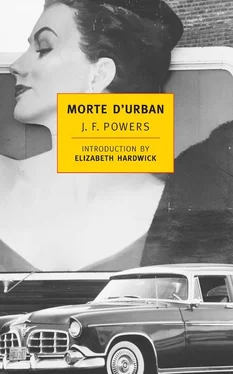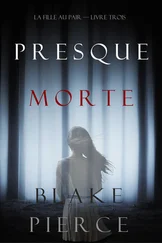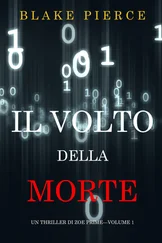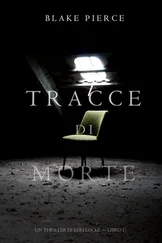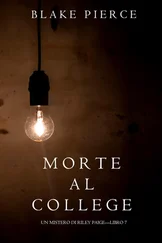But Father Boniface would regret this. When the word got around that Father Urban was unavailable, and his long-standing engagements were assigned to another, to Jack, say, and the cancellations rolled in, then Father Boniface would know what he’d done when he gave his best man the green banana.
Jack, who had entered the stockroom, and was talking trains with Brother Lawrence, suddenly caught sight of Father Urban and came back to him. “I don’t know why I didn’t tell you this before, Urban,” Jack said. “But I’ve been transferred.”
“Oh?”
“Yes. To this new place in Minnesota.”
Father Urban gazed out the window at a row of garbage cans in the alley — all the ground-floor windows in the neighborhood had steel bars over them, another sign of the times, he thought — and felt that he should say something encouraging, but he wasn’t up to it. “Will you be in charge up there?” he asked. Anything was possible.
“Oh no. Nothing like that.” Jack said he understood that Father Wilfrid, the man now in charge, was staying on. The other two men there, though, were being sent elsewhere — where, Jack didn’t know, nor did he know who would be replacing him on the road. “Maybe nobody,” he said, as if he had no illusions about himself.
“Well, I’m sorry to hear it,” Father Urban said. In the circumstances, Jack’s transfer was almost as much of a blow to him as his own. Why did it have to happen this way? Why did it have to happen to them both at the same time? Why did they have to go off together like two men sentenced by the same judge, on the same day, to the same institution? “But I can’t say I’m surprised,” said Father Urban, again gazing through the bars at the garbage cans in the alley. “As soon as a man’s any good to himself and the Order, you can be sure he’ll be given something else to do. I’ve seen it happen too often. That’s one reason we’re where we are today — nowhere.”
Jack glanced around. He probably meant that Brother Lawrence shouldn’t be hearing such talk.
“Well, you know, in a thing like this, Urban…”
“Ours not to reason why? Is that it?”
Jack, it seemed, had something to say, but didn’t care to say it and was giving the world every possible chance to end first. “No, Urban, it’s not for us to say, and you know it. Not in a thing like this.” Jack had spoken with surprising firmness for him and now appeared anxious to leave.
“Have it your way,” Father Urban said, releasing him. He watched Jack depart and noted that his rubber heels were worn down to the leather. Jack’s attitude was the right one, of course, but it must come easier for someone like him. What did he have to lose?
Father Urban knew that he’d have to do better with Billy. We go where the Lord willeth, and all that, but could he do it? Wouldn’t it be easier to phone Billy’s office and call off their next day’s luncheon date? If they met, and it came out how Father Urban really felt about the transfer, Billy might take it as an act of ingratitude to him, which in a way it was, and try to throw his weight around with Father Boniface. Nothing good could come of that. It would be much easier to give Billy the bad news, and show the right attitude, in a letter. So there was really nothing to keep Father Urban from leaving for St Paul on the Zephyr that afternoon. If he hurried, he could catch the North Coast Limited. And if he left that afternoon, he’d be well out of an evening at the apartment or at the Novitiate, an evening of pretending that all was well with the world.
But then Jack entered the stockroom again, and came back to him again, and, for several moments, just stood there looking down at him in a benign manner, which Father Urban found nerve-racking. He was afraid that Jack had somehow found out what he obviously hadn’t known before: that he wasn’t the only one ticketed for Minnesota. For reasons of pride, Father Urban hadn’t told Jack before, and for the same reasons, and also because he hadn’t told him before, he didn’t wish to now. Yes, he knew that he was making it harder for himself later. “Well, Jack?”
“I’ve been thinking about what you said before,” Jack said. “I just want to say that in a thing like this I don’t much care what happens to me, but it’s nice to know somebody else does.”
“Oh?” said Father Urban, but he nodded — as if to say yes, he had spoken as he had not out of a mean spirit of criticism, which ill became one under a vow of obedience to his superiors, but out of an excess of brotherly love. What the hell else could he do? Tell the truth? Now? The truth, if it came out now, would hurt Jack more than it would Father Urban, which was saying a great deal, and that was why Father Urban allowed the misunderstanding to go on. It meant a lot to a poor soul like Jack. You could even say it was serving a very good purpose. Going a step further, Father Urban said, “Jack, if you don’t have another engagement, I’d like to take you out to lunch.”
As it happened, Jack didn’t have another engagement.
They were sitting in the Pump Room, dining on champagne and shish kebab, one of Billy Cosgrove’s favorite combinations, and the spirit of Billy, powerful if not all-protecting (it couldn’t be invoked against unjust superiors), seemed to watch over them there. At the next table, coffee was being served by a colored boy got up in turban, white breeches, and green hose, the first of his brilliant kind to come within range of Jack’s limited vision. Jack aimed a finger, from what he seemed to think was a concealed position on the table, in the boy’s direction.
Father Urban nodded. “Yes, I know. I’ve been here once or twice before.” In fact, he had been there many times, and was known there even before he met Billy, who, however, was the only one of his hosts ever to urge him to make use of his account. Father Urban had done so on occasion, but this was the first time he had brought along a guest. The idea had been to give Jack something to remember in their exile. Father Urban was beginning to wonder, though, if his guest wouldn’t have been happier in a cafeteria.
Jack flinched and drew back when a Turk passed with a piece of meat on a flaming sword. “You’d think they’d do that in the kitchen.”
“Oh, that’s all part of coming here,” said Father Urban. He drained his glass, and the waiter was there to fill it up.
“Maybe you could pay us a little visit when you’re through in St Paul,” Jack said. “At Duesterhaus.”
Father Urban hesitated. No, he wasn’t ready to go into that. “I might,” he said. “Drink up.”
Jack raised his full glass and downed it all. He seemed to forget all about his glass until the waiter came to fill Father Urban’s. “Save you a trip,” he said to the waiter.
“You shouldn’t bolt your food,” said Father Urban.
The waiter filled Jack’s glass and moved away.
Before they finished the lamb, they were working on a second bottle of champagne, and Father Urban was passing into another phase. He was almost ready to be delivered of his secret. It could be a minor operation, only a few painful moments, and these under a light anesthesia of wine. Jack took people at their best and would see that Father Urban had been in a state of shock when the misunderstanding arose. Jack might not be hurt at all. In any event, he had to be told. Otherwise, their first meeting at Duesterhaus would be an ordeal. Jack would recall to the end of his days how the two of them had sat in the Pump Room enjoying what they’d thought was a farewell party, when all the time…
“Lamb,” Jack said, going deeper into a matter that hadn’t interested Father Urban earlier. “We know Our Lord ate lamb.”
Читать дальше
